Categories > Guides and Tips
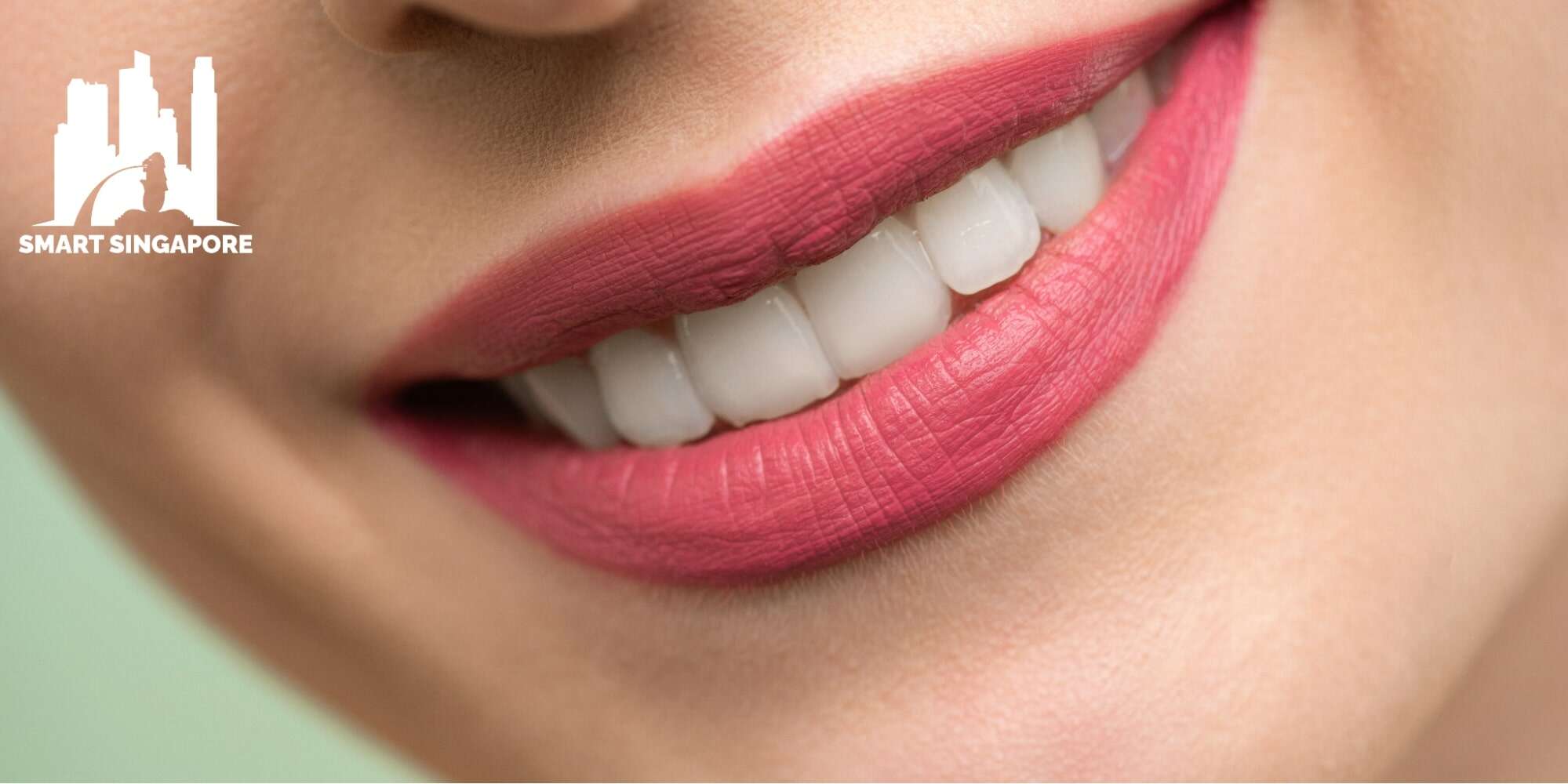
All You Need to Know about Dental Veneers in Singapore
- What are dental veneers?
- What are the types of dental veneers in Singapore?
- Porcelain vs Composite: Which One Is Better for Me?
- Porcelain Veneers
- Composite Veneers
- Why do I need dental veneers?
- Should I get dental veneers or crowns?
- Fitting Veneers and Crowns to Your Teeth
- Materials for Veneers and Crowns
- How much do dental veneers cost in Singapore?
- Does insurance cover dental veneers?
- What can I expect when getting dental veneers?
- How Porcelain Veneers Are Made
- How Composite Veneers Are Made
- What are the benefits of getting dental veneers?
- What kind of dentist should I visit for dental veneers?
- What are the best ways to maintain dental veneers?
- Avoid hard, crunchy food
- Avoid sugary drinks and food, coffee, and tea
- Avoid smoking and drinking alcohol
- Practice proper dental hygiene
- Can dental veneers fall off?
- How to Keep Veneers from Falling Off
- Dental Veneers for a Bright Smile
While many tooth problems are reversible, some remedies are not long-lasting. One surefire solution for better-looking teeth is dental veneers.
If you’re thinking about getting them for the first time, here is all you need to know about dental veneers to help you make informed decisions on your next visit to the dentist.
What are dental veneers?
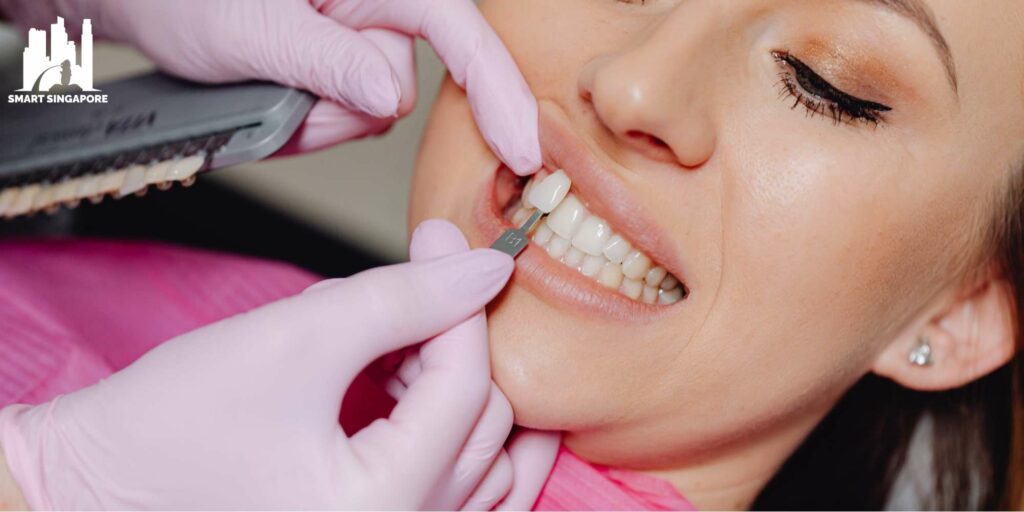
Dental veneers are a pain-free cosmetic solution to get pearly white teeth. These thin layers of porcelain laminates are customer-made to fit and cover the surface of your teeth.
Dental veneers are designed to improve your teeth’s external appearance without damaging the enamel’s natural state underneath.
Veneers are also reversible should patients want adjustments made or like them removed.
While highly versatile, dental veneers are not permanent. A new set can last around 20 years if well taken care of.
The quality of dental veneers in Singapore depends on the dentist you visit to get them done. Research can help you find the right clinic for your dental needs.
What are the types of dental veneers in Singapore?
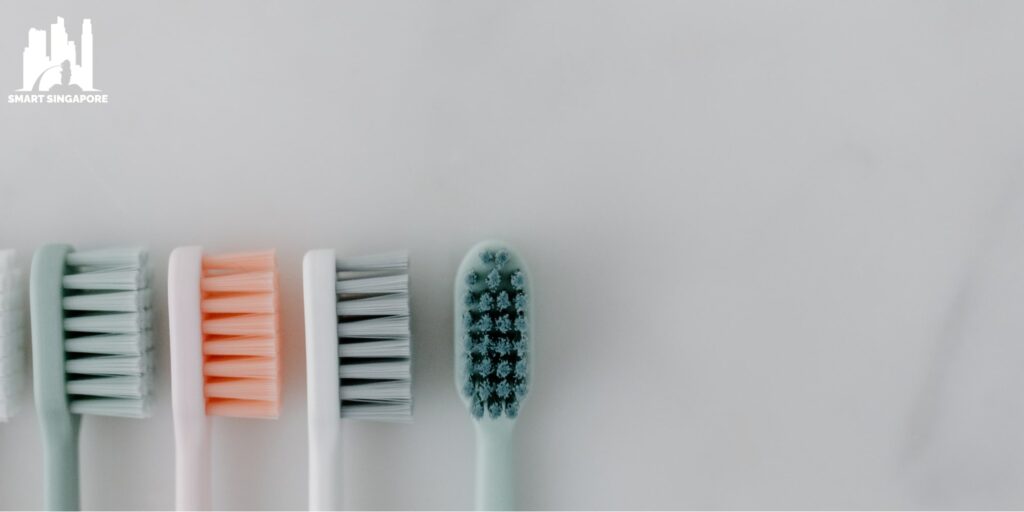
There are two main types of dental veneers in Singapore, namely porcelain veneers and composite veneers.
Porcelain or ceramic dental veneers are made of thin porcelain shells that are permanently glued onto the surface of your teeth.
Composite veneers, on the other hand, are made out of resin and are engineered and affixed to your teeth.
With the rapid advancement of medical technology and equipment, many dentists have approved using other more durable and advanced dental veneers.
Not all dental clinics offer these particular types of dental veneers in Singapore.
Porcelain vs Composite: Which One Is Better for Me?
| Porcelain veneers | Composite veneers | |
| Material | Made out of thin sheets of ceramic or porcelain | Made out of engineered resin |
| Time | Takes at least 2 visits | Can be done within 1 session |
| Procedure | Requires teeth filing and moulding | Resin is moulded and polished in 1 sitting |
| Durability | Can last around 20 years | Can last around 5 to 8 years |
| Cost | Around $600 per tooth | Around $150 per tooth |
| Cosmetic Outcome | More natural-looking results | Whiter teeth but more prone to stains |
Both types provide the same result, but many patients choose one over the other for various reasons.
Porcelain Veneers
If you have significant damage to your teeth, a more permanent solution like porcelain veneers might be a better option than composite veneers.
The procedures for these two types of veneers also differ, and porcelain takes much longer to complete than composite.
Getting porcelain veneers involves teeth filing and moulding. When the mould is formed, your dentist will send it to a specialist who creates the veneers for you.
You’ll have to visit your dentist twice before you get to enjoy your new pearly whites. The resin can be moulded and affixed onto your teeth within the same day for composite veneers.
Porcelain is sturdier and catches the light better than composite resin. This results in more natural-looking veneers that match well with your natural teeth.
Adjustments are not possible for porcelain veneers unless you’re willing to pay for a new batch. Porcelain is a lot more expensive compared to its composite counterpart.
When it comes to durability, porcelain lasts longer than composite veneers. With good care, porcelain veneers can last anywhere between 15 to 20 years.
Composite Veneers
Composite veneers, on the other hand, are for less serious oral damage and are reversible. If you need to adjust the colour or size, your dentist can quickly fix the resin for you.
Even with good oral habits, composite veneers last for about five to eight years, with a maximum of ten. They are also more vulnerable to stains, unlike porcelain veneers.
Choosing between the two types of veneers will depend on your needs and the aesthetic outcome you’re aiming for.
Why do I need dental veneers?
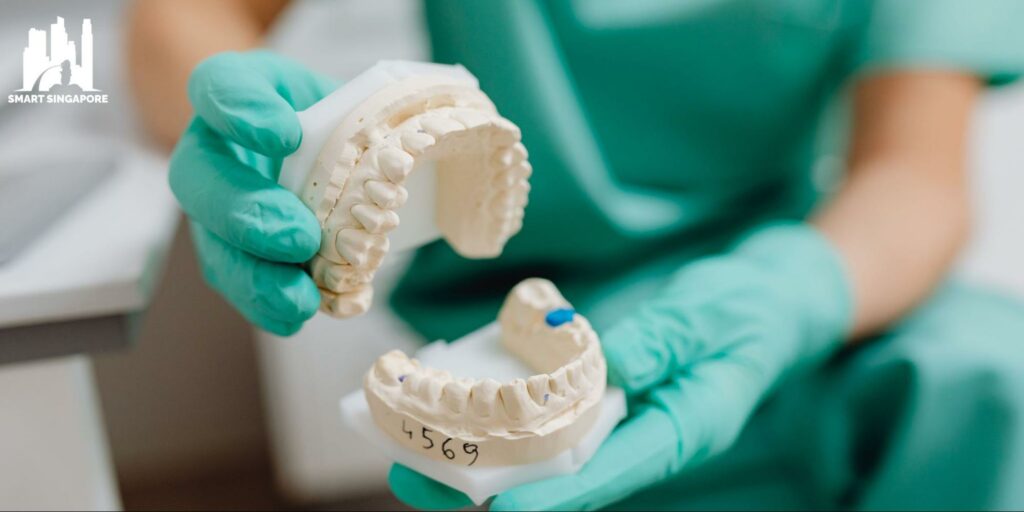
Many people may need dental veneers to cover up and correct damaged, gapped, or discoloured teeth. Dental veneers are an excellent fix for permanent dental problems.
If you’re not happy with the aesthetics of your natural teeth, getting dental veneers is a great option you can discuss with your dentist.
Not all dental problems, however, can be solved with dental veneers. For example, minor discolouration can be remedied with teeth whitening treatments.
Tooth decay is also a problem that dental veneers can’t medically treat. Dentists may fill cavities instead of placing veneers on top of the decay.
For gapped teeth, your dentist may discuss options like braces or dental crowns to fix minor cosmetic issues.
Should I get dental veneers or crowns?
| Dental veneers | Dental crowns |
| Made for improving the external appearance of teeth | Made to restore the functionality of teeth |
| Usually created in multiples | Can be made separately for specific teeth |
| Made of porcelain or composite resin | Made of metal, ceramic, or porcelain |
Getting dental veneers involves trimming or filing the outermost area of your teeth. Depending on the natural state of your teeth, the amount of trimming will differ.
Dental veneers may not be a good option for cosmetic repair if your natural teeth are brittle. Your dentist may advise other treatments like dental crowns.
Dental crowns provide the same aesthetic outcome as dental veneers, except their purpose is also to restore the function of your teeth. They help patients improve their bite strength.
Crowns cover exposed areas of a tooth and can be placed individually. Dentists often prescribe them to patients suffering from severe dental damage.
Fitting Veneers and Crowns to Your Teeth
Dental veneers and crowns are both fitted and custom-made for your teeth. Both are designed to mimic the natural colour and shape of your tooth.
However, dental crowns require more trimming, and patients are more vulnerable to sensitivity during the procedure.
While virtually painless, opting for dental crowns may require the use of local anaesthesia for patients with lower pain tolerances.
Materials for Veneers and Crowns
Crowns are also made of similar materials as veneers—porcelain and composite. However, crowns can be also made of metal.
These metal crowns are more durable and last longer than porcelain veneers. If you only have one damaged tooth, you’ll probably only need one dental crown.
Many patients opt for dental veneers to cover up multiple sets of teeth. The process of getting veneers or crowns is similar, where moulds are made and sent to a lab.
Consult your dentist about your concerns, and they may help you narrow down your options for improving the external appearance of your teeth.
How much do dental veneers cost in Singapore?

Porcelain dental veneers may cost around $700 to $1,000 per tooth, while composite veneers cost around $150 to $300 per tooth.
Dental veneers are quite expensive, and rates may vary between clinics. Some clinics may adjust the price if you’re getting multiple veneers.
The cost may also vary depending on the design and scope of work the dentist might need to do before getting your veneers affixed to your teeth.
Procedures like scaling, moulding, filing and polishing are factors in price variation. The more maintenance you’ll need, the higher the rates may be.
Does insurance cover dental veneers?
Since dental veneers are often considered cosmetic, dental insurance does not always cover the treatment.
However, dentists who specialise in reconstructive surgery or treatments may accept insurance policies that cover a portion of the estimated cost of getting veneers or crowns.
It’s best to discuss with your dentist your insurance coverage or consult a financial advisor about financing your dental needs.
What can I expect when getting dental veneers?
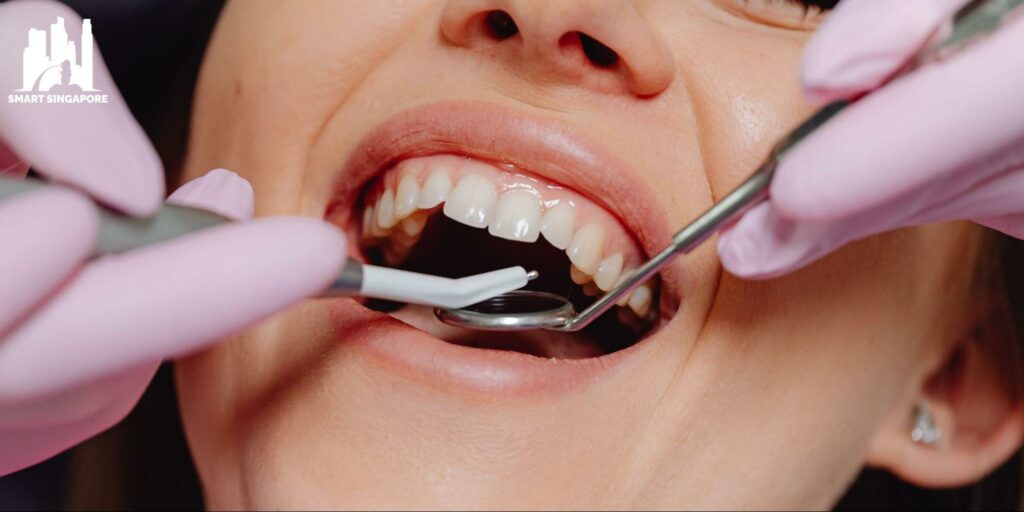
Getting dental veneers is a relatively straightforward process. Your dentist will first discuss the possible treatment options for your dental needs.
If your case renders veneers necessary, your dentist will discuss the cost and scope of work. Once a treatment plan is agreed upon, your dentist will work on helping you decide on the material.
How Porcelain Veneers Are Made
- If you choose to get porcelain veneers, your dentist will first file the outermost layer of your teeth and create a mould.
- This mould will then be sent to a lab where your porcelain veneers will be created for you. This requires a second visit to the clinic.
- Once the veneers are ready, your dentist will ask you to come back, and they will affix the veneers to the surface of your teeth.
Polishing and adjustments will be made once the veneers have been placed. If you want minor adjustments to be made, you might have to wait another few days for the revised mould.
How Composite Veneers Are Made
For composite veneers, your dentist will go through the same process, except sending a mould to a lab is not necessary.
Your dentist will use engineered resin to fill your teeth. The procedure can be done within one sitting, followed by polishing and adjustments.
What are the benefits of getting dental veneers?
Aside from the aesthetic satisfaction of having a bright and white smile, dental veneers add a layer of protection for your teeth.
Dental veneers also make chipped or gapped teeth look less visible. Both types of dental veneers provide almost natural-looking results.
Due to the extra protective layer, dental veneers can also prevent progressive discolouration of your natural teeth.
They give your teeth extra strength when chewing, making the treatment ideal for patients with missing teeth. Improperly chewing your food can lead to various digestive problems.
One great benefit of getting dental veneers is their direct impact on self-confidence. A bright and white smile significantly boosts self-confidence, which can indirectly improve your overall well-being.
What kind of dentist should I visit for dental veneers?
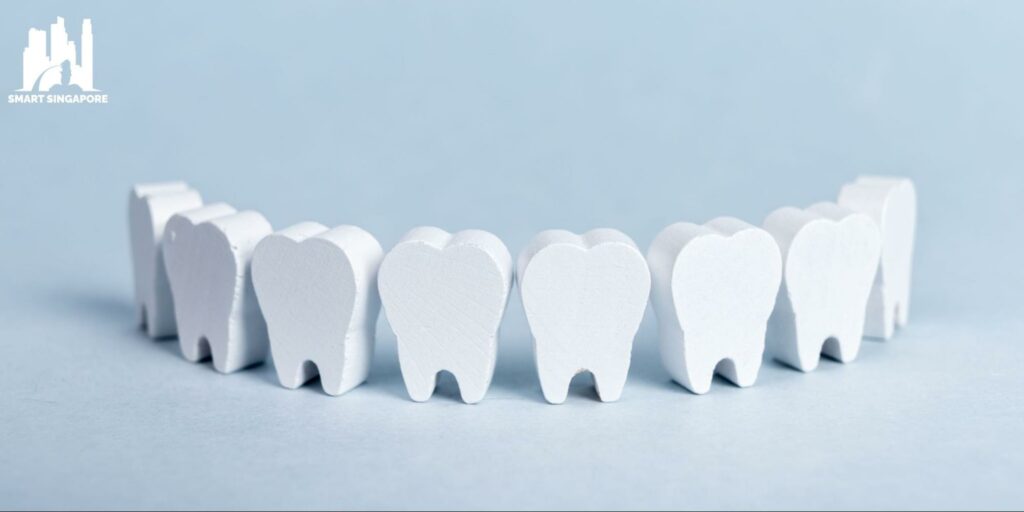
You should visit a cosmetic dentist if you want dental veneers in Singapore. Your local dentist can refer you if your clinic doesn’t specialise in aesthetic dentistry.
However, patients with underlying dental diseases like gingivitis or severe tooth decay may need to consult their general dentists before considering getting dental veneers.
Not all patients are ideal candidates for dental veneers in Singapore. It’s crucial to consult your general practitioner before undergoing cosmetic dental treatments.
What are the best ways to maintain dental veneers?
Avoid hard, crunchy food
You can lengthen the lifespan of your dental veneers by avoiding excessive amounts of hard, crunchy food.
Avoid munching on crustaceans, hard nuts, and bones. It’s also best to refrain from using your teeth to open bottle caps.
Avoid sugary drinks and food, coffee, and tea
When it comes to maintaining the colour of your veneers, it’s best to stay away from sugary drinks, coffee, and tea.
While these drinks and food don’t usually damage your veneers when taken moderately, consider the cost of repairing your veneers when they start to deteriorate.
Avoid smoking and drinking alcohol
It’s also best practice to change lifestyle habits like smoking and alcohol. Maintaining your oral health is key to a longer-lasting perfect smile.
Practice proper dental hygiene
Brush your teeth at least twice a day, and remember to floss at least once daily. Visit your dentist regularly for checkups and polishing.
Can dental veneers fall off?
Although rare, dental veneers can fall off when the cement binding the material to the surface of your teeth breaks.
Most breakages are avoidable. It’s essential to visit your dentist immediately when your dental veneers break or fall off.
Your dentist can re-affix the dental veneers that have fallen off. If your dental veneers are damaged, your dentist may have to replace them entirely.
How to Keep Veneers from Falling Off
Avoid brushing your teeth with too much force.
It’s also best to avoid using toothpaste with abrasive cleaning objects in them. Choose safe and proven formulas instead.
Dental Veneers for a Bright Smile
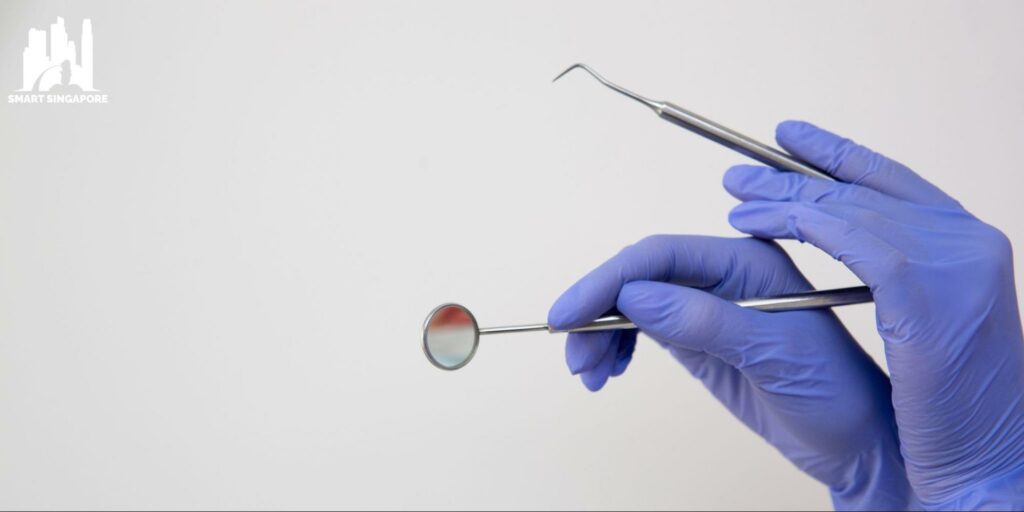
A bright and white smile is a great accessory that boosts a person’s self-confidence. Keeping your oral health in top shape requires a lot of patience and careful attention to what you eat and drink.
Dental veneers are a great solution to any dental cosmetic concern. While other options are available to improve your teeth’s appearance, veneers are still widely chosen and relied on by patients.
If you’re considering getting dental veneers anytime soon, consider doing more research about their benefits and consult your dentist to make an informed decision about your oral health.





